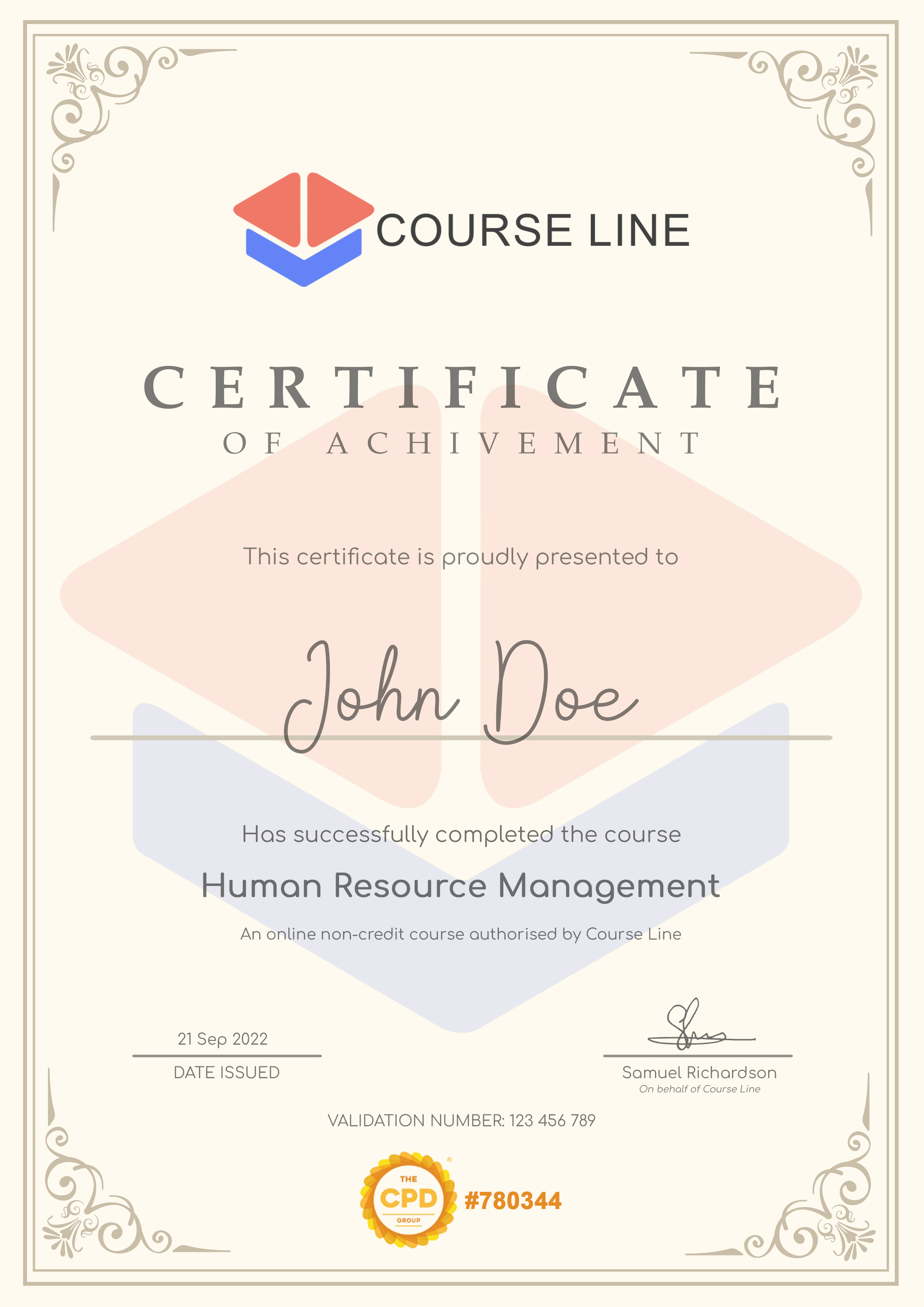- Duration / Course length: Upto 5 Hours Start now
- Accredited by: CPD Group
- Certificates:
- Course delivery: This course is delivered in video format
Course details
Our Supervising Food Safety - Level 3 Course is designed for catering sector managers and supervisors to assist them to grasp their basic day-to-day responsibilities, which include applying the basics of a HACCP food safety management system.The learner will get an adequate understanding of food hygiene and safety for catering, recognize the legislation, be aware of the rules surrounding personal hygiene in a catering workplace, and incorporate best practices in our Supervising Food Safety - Level 3 Course.
Special Offer
- Learner will get Free Certificate
- No Extra fees
- Lifetime Course Access
- Developed by Qualified Professionals With Updated Materials
- 24/7 Learning Support and Assistance
- Course completion free PDF certificate
- High-quality E-learning Study Materials
- No Hidden Fees or Exam Charges
- Access the Course Anywhere in the World
- Self Paced Learning and Laptop, Tablet, Smartphone Friendly
Course Curriculum
Introduction of Supervising Food Safety in Catering
Module 1: Importance of Food Safety
- Importance of Food Safety Intro
- Who is most at risk?
- What causes food-related Illnesses?
- The Role and Responsibilities of a Food Supervisor
- Summary
- Legislation in the united kingdom
- General food regulations 2004
- How to enforce the law
- Fines and prosecution
- Explaining due diligence
- The responsibilities of the food business operator
- How outbreaks of foodborne illness are investigated
- Introduction
- Various Types of food contamination
- Chemical contamination
- Physical contamination
- Microbial contamination
- Allergenic contamination
- Cross-contamination
- Detecting contaminants
- Cross-contamination and risk reduction
- Summary
- Introduction
- Bacterial growth - nutrients
- Bacterial growth - moisture
- Bacterial growth - acidity
- temperature
- time
- atmosphere
- Bacterial spores
- Toxin
- Summary
- Deliveries
- Food storage
- Stock control
- Recording and labelling
- And
- Introduction
- What is food poisoning?
- Foodborne diseases
- Salmonella
- Staphylococcus aureus
- Bacillus cereus
- Escherichia Coli (E-coli)0157 (E-COLI 0157)
- Clostridium botulinum
- Campylobacter enteritis
- Listeriosis
- And
- Introduction
- Food poisoning from chemicals
- Metals
- Poisonous plants
- Dried red kidney beans
- Poisonous fish
- Mycotoxins
- Summary
- Safe Temperatures
- Food Deliveries
- Fridge Temperature
- Freezer Temperature
- Cooking Temperature
- Reheating Food
- Cooling Food
- Hot and Cold Holding
- Cook-chill and Cook-freeze
- Indicator of Food Spoilage
- Reasons for Food Spoilage
- High-temperature Preservation
- Low- Temperature Preservation
- Dehydration
- Chemical Methods of Preservation
- Physical Methods of Preservation
- Measuring Equipment
- Air Temperature
- Effective Techniques to Take Food Temperature
- How to Record a Food Temperature Check
- Importance of Temperature Recordings
- The Design of Food Premises
- Workplace Materials- Work Surface
- Workplace Materials- Floors and Walls
- Workplace Materials- Ceiling Material, Doors and Windows
- Workplace Materials- Lighting and Ventilation
- Utilities- Electricity and Gas
- Utilities- Water and Drainage
- Work Equipment
- Fixtures and Fittings
- Food Display and Storage
- Storing Waste
- Waste Removal
- Types of Cleaning
- Six Stages of Cleaning
- Cleaning Chemicals
- Cleaning Work Equipment and Surfaces
- Cleaning Schedule
- Benefits of Cleaning
- Food Packaging and Covid-19
- Importance of Pest Control in the Food Industry
- Cockroaches
- Rats
- Mice
- Birds
- Other Common Pests
- Controlling Measure
- Supervising Pest Control
- Importance of Personal Hygiene
- Supervisor's Responsibilities
- Monitoring Standards
- Hand Washing
- Covid-19 and Food Handling
- Wounds and Skin Infections
- Sickness
- Protective Clothing
- Hair
- Jewellery
- Smoking
- Social Distancing and Covid-19
- Importance of training
- Levels of Training
- Staff Induction Training
- Existing Staff Training.
- Staff Training Records
- The Role of Supervisors and Management
- HACCP System - Key Principles of HACCP
- HACCP System - Prerequisites Program
- HACCP System- 12 Step Process
- Safer Food, Better Business
- Management Responsibilities
- Opening and Closing Checks
- Documenting the Food Safety System
- Summary
By the successful completion of the course, the learner will instantly receive an E-Certificate, which is free of cost. In addition, our courses provide you with up-to-date industry knowledge and skills, aiming to make you an expert in the field.
Updated on 06 February, 2023
Eligibility / Requirements
There is no special requirements, anyone can take this course all you need is a smart device (smart phone, tablet, laptop or computer) with internet connection so that you can access the course from anywhere in the world.
Job roles this course is suitable for:
Restaurant Manager , Food Safety Auditor , Food Safety TechnicianAbout Course Line
With Course Line, you have access to the best courses - all with one consistent interface.
Course Line is affordable and flexible. We offer an extensive library of courses with over 300 hours of video lectures, online exams, test areas, as well as traditional handouts. It's never too late to learn something new with Course Line
Our courses are designed with busy professionals in mind - they are self-paced, start at any time of the year, and can be completed in as little as 3 months.
Courses that fit in your life with Course Line. We offer a variety of learning materials including video and audio lectures, online exams, test areas, as well as traditional handouts - you can choose what works best for you.



